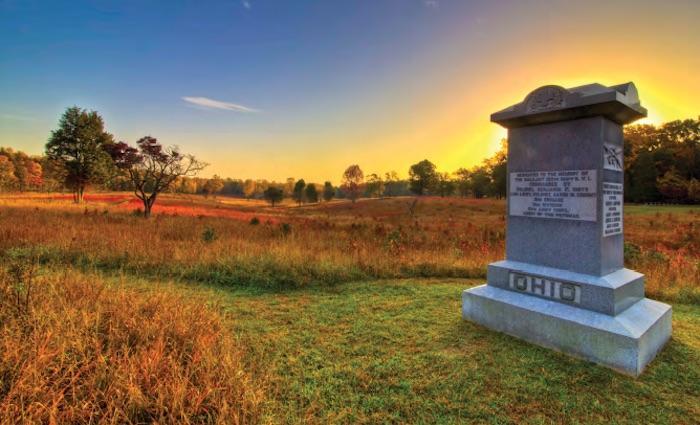
Organizations are tracking changes the Trump administration is making to recorded history/The Bloody Angle at Fredericksburg & Spotsylvania National Military Park, Buddy Secor
While the Trump administration has been changing, altering, or in some cases erasing history from federal government websites, there are organizations out there that have been working to protect that history.
The George Wright Society is one such organization, and has been able to capture three terabytes — an amount equal to 3,000 gigabytes, or about the amount of space you'd need to hold 52.5 million PDF pages — of webpages from the National Park Service, U.S. Forest Service, Bureau of Land Management, National Oceanic and Atmospheric Administration, and other federal government websites.
"It's a new project that we've created called the Stewardship Archive," Dave Harmon, the society's executive director, told the National Parks Traveler in this week's podcast. "And this came about after the last election, a group of people, long-term stalwarts (of the society) got together and were contemplating what the change of administration might portend for parks and place-based conservation."
His comments came as a data comparison published over the weekend by the Washington Post revealed the National Park Service since President Trump took office has edited dozens of its website references dealing with slavery and historic struggles of Black Americans, including references to present-day echoes of racial division.
Based on the tack the first Trump administration took against ideologies it opposed, and what it had indicated it would change if Donald Trump won a second term, there were concerns raised among this group about what might be targeted in a second term. And not just topics like climate change or fossil fuels, but also pertaining to those who identify as LGBTQ, and diversity, equity, and inclusion initiatives, said Harmon.
"As an overarching principle, we think that diversity, equity, and inclusion are critical to the functioning our society," he said. "So that was a topic that we were concerned about anyway. Long-story short, we were able to get a small grant from a donor and put together a web capture project. We made up lists based on our own knowledge of these topics."
The grant enabled the society to hire computer data scientists who helped automate the web capture program. The program made copies of entire websites, HTML sites, PDF files, "substantive information about these particular topics. The thought there was that we would simply get these, put them one hard drives, keep them as an archive that could be of use for people who want to know what may have changed when the new administration comes in.
"... The whole idea there was simply to provide a snapshot of what we were calling the 'federal agency state of knowledge and practice' as it existed," explained Harmon. While there are other organizations that also have moved to safeguard history from the Internet, he stressed that the society specifically wanted to capture information relating to protection of public lands and waters.
The next step, he said, is to organize the captured data in a format that could easily be searched.
The Washington Post just did a similar project to demonstrate what the Trump administration has done in that regard. In a story this past weekend, the newspaper pointed out changes the administration has made to its accounts of such major historical issues as the Underground Railroad as explained by the National Park Service.
One of those interviewed for the article, Towson State University Professor Andrew Diemer told the Post that, "changes identified by The Post minimized the 'legal and political forces' arrayed at the time against enslaved African Americans.
“Overall, the revisions seek to emphasize ‘harmony’ and ‘unity’ and to de-emphasize conflict in a way that is out of step with how historians have written about the Underground Railroad in recent decades,” Diemer told the newspaper.
Changes made to Park Service webpages pertaining to the Civil War also altered history, the paper reported.
"A country that cannot tell the truth about itself cannot assess what has led it to moments of greatness in the past and what could lead it again to greatness,” said Greg Downs of the University of California at Davis.
Traveler footnotes:
Listen to the Traveler's conversation with Dave Harmon of the George Wright Society here.
Find the Washington Post story here.

 Support Essential Coverage of Essential Places
Support Essential Coverage of Essential Places






